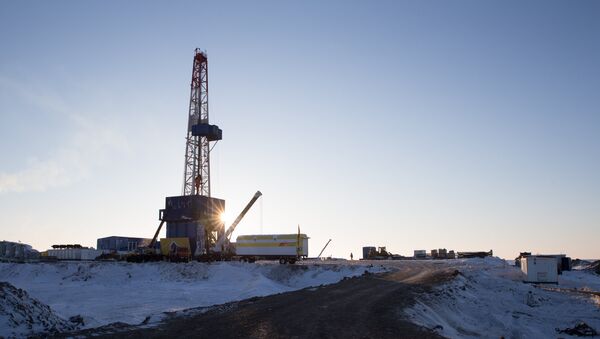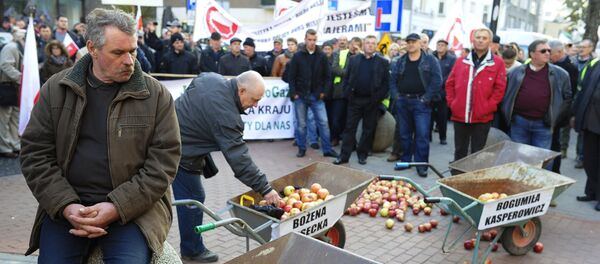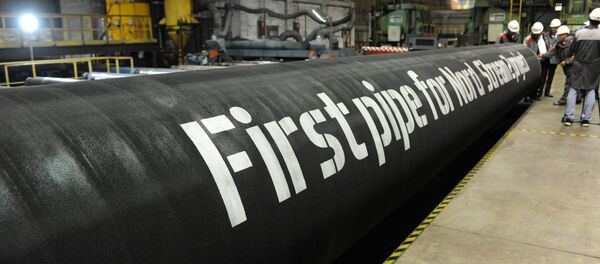The interview came after an article published by the Wall Street Journal on Monday said that anti-Russian sanctions had failed to stop sustained growth in the country's oil industry.
Russian oil production's output rose above 11 million barrels a day last year and reached its highest level in decades.
According to the article, the sanctions didn't prevent European companies from investing in projects in Russia.
"Exxon Mobil Corp. is suffering from sanctions against Russia. The same can't be said for other big Western energy companies, or for Russia's oil production," the article said.
Italy's Eni is preparing to drill a Black Sea well later this year, and also plans to explore the Arctic waters of Russia's Barents Sea.
Despite Sanctions, Russia's Oil Industry Powers On https://t.co/2EmPx5EaiD #oil #business pic.twitter.com/OIGQYLyJeV
— Steve Kurashima (@kurashimacpa) 10 мая 2017 г.
Other European companies moving ahead with projects in Russia include Britain's BP, Norway's Statoil, France's Total, Royal Dutch Shell and some other firms.
Speaking to Sputnik, Thierry Bros described the anti-Russian sanctions as "an archaic tool" which he said is out of line with the current interests of the private oil companies in the EU and the US.
"The second point is to look at the EU and US sanctions against Russia. Washington's punitive measures are implemented because the US is far away from Russia, while in the EU, we have closer relationship with Moscow, whether we like it or not," Bros said.
He recalled that the EU's anti-Russian sanctions are mostly related to the oil sector, because as far as gas is concerned, "we are dependent on [the Russian gas giant] Gazprom."
"We cannot slap sanctions [on this sector] because we need cheap Russian gas for heating our homes," Bros added.
When asked about what economic factors made it possible for the oil and gas companies to boost their output, he specifically focused on the EU's weird policy related to Russia.
"This is the problem we have in Europe," something that is "a bit schizophrenic," according to Bros.
"On the foreign policy side, we do not like Russia because of issues related to Crimea, Ukraine and Syria. But on the energy side, we like Russia because we need, as I have said, Russian gas to heat our homes. This is why [energy] companies want to continue to invest in Russia and one of the best examples is the Yamal LNG project or the Nord Stream 2 project," he said.
Bros also pointed to Russia's huge oil and gas resources, saying that "if we want to access cheap gas and oil we need to cooperate with Russia."
Brussels, Washington and their allies introduced several rounds of sanctions against Russia on the pretext of its alleged involvement in the Ukrainian conflict, which Moscow has repeatedly denied.
In response to the restrictive measures, Russia imposed a food embargo on some products originating in countries that have targeted it with sanctions.
Have you heard the news? Sign up to our Telegram channel and we'll keep you up to speed!




